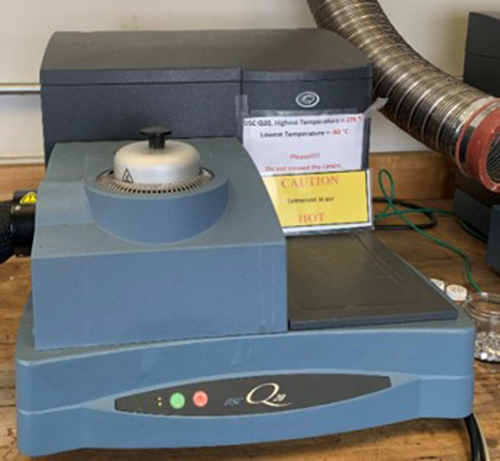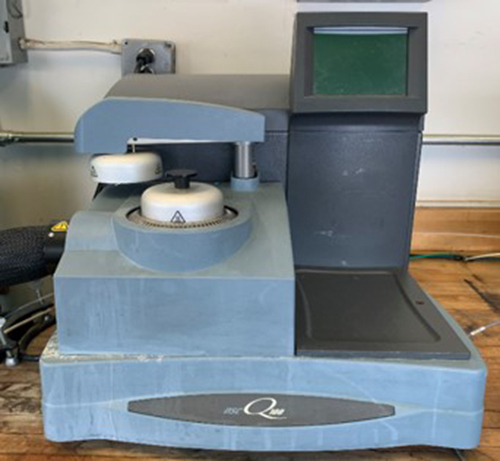TA INSTRUMENTS DSC Q20

TA INSTRUMENTS DSC Q100

- Solid or liquid samples, standard size (5- 15 mg)
- Depending on type of Measurement: Typical Sample Size (mg)
- Purity: 1 to 3mg
- Melting point: 2 to 10mg
- Glass transition: 10 to 20mg
- Oxidative induction time (OIT): 5 to 20mg
- Melting and crystallization: 5- 10mg
Differential Scanning Calorimetry (DSC) is a thermal analysis technique in which the heat flow into or out of a sample is measured as a function of temperature or time, while the sample is exposed to a controlled temperature program.
- It is a very powerful technique to evaluate material properties such as glass transition temperature, melting, "cold" crystallization , specific heat capacity, cure process, purity, oxidation behavior, phase changes, product stability, oxidative stability, thermal conductivity, cure/cure kinetics, percent crystallization and thermal stability, solid solid transition.
- The Q-100 has Modulated DSC capability. MDSC increases the amount of information that can be obtained from a single experiment.
- In addition to transition temperatures, melting and crystallization and heat capacity, modulated DSC provides an improved resolution of transitions that overlap or occur only a few degrees apart, an increased sensitivity to weak transitions, and separation of reversing and non-reversing phenomena.
Other Applications
Polymorphic transitions, liquid crystal, protein denaturation,, hazard potential, lifetime estimation, cure rates, heat of fusion, heat of crystallization, expolosion potential, heat of reaction
Detection Limits
The Q-20 and the Q-100 are connected to RCS coolers and have a temperature range of -90°C to 400°C. Temperature Accuracy +/- 0.1 °C and Precision +/- 0.05 °C
Location: Thermal Analysis, Rheology, and Polymer Processing Lab
Point of Contact: Dennis Ndaya
dennis.ndaya@uconn.edu
860-486-4075